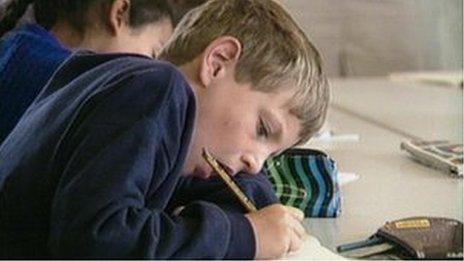League tables 2013: Hundreds of schools below new targets
- Published
Hundreds of primary schools in England have failed to hit tougher literacy and numeracy targets brought in this year.
Targets were missed by 767 of more than 15,000 schools in which final-year pupils took national Sats tests.
That is more than the previous year, when the targets were less demanding - but comes against a backdrop of overall improving results.
About three-quarters of the pupils achieved the expected Level 4 or higher in reading, writing and maths.
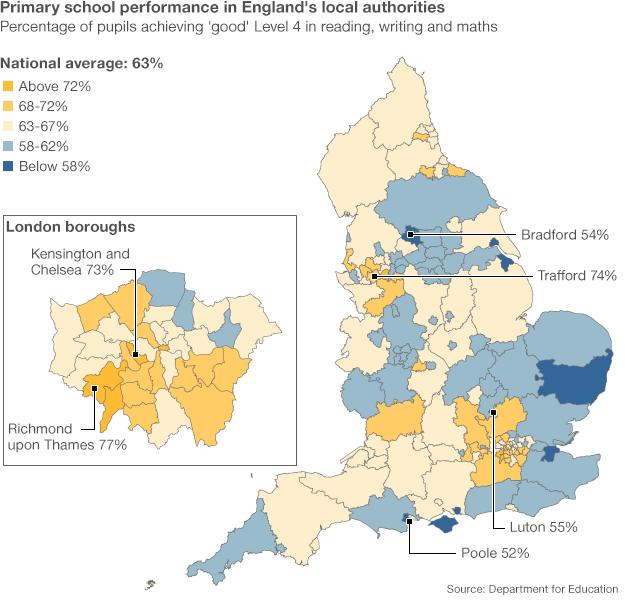
And 63% reached a tougher measure brought in this year, which the government says shows children are ready for secondary school.
One in five children (21%) reached the even higher grade, Level 5.
The league table data, external was released by the Department for Education (DfE).
Individual schools are now deemed to be below target if fewer than 60% of their pupils do not achieve Level 4 or higher in reading, writing and maths and pupils are not making the expected progress in these three subjects between the ages of seven and 11.
Those falling below targets could be put under new leadership, turned into academies or closed down.
The government says the targets are "firm but fair" and the evidence is that schools "respond to the challenge of a higher bar".
It says the data suggests schools are improving and that last year 834 primaries would have fallen below the new standards.
A spokesman for the DfE said: "This government brought in higher primary-school floor targets with one aim in mind - to drive up standards.
"Schools respond to this challenge. The floor standards we introduced were tougher and performance is improving. Heads, teachers and pupils deserve credit for meeting the challenge head on."
Some results from 25 schools were "annulled" or not counted, the government says, because of "maladministration".
This may include:
cheating
opening test papers early
incorrect storage of papers
giving children unsupervised rest breaks
teachers failing to cover wall displays
Many of the annulled results were in maths - but in 11 cases, results for reading were also not counted.
Among those scoring 0% overall after having its maths results annulled was Newton Farm Nursery, Infant and Junior School in Harrow, which has been high in the league tables in recent years.
A note in a newsletter, published on Newton Farm's website, said the school's governing body had investigated this year's tests and found that "a handful of papers had been altered" and action had been taken.
The league table data shows how the different parts of England compare.
London's schools continue to perform well.
Excluding local authorities with few pupils and schools, the best performing are:
Richmond upon Thames
Trafford
Kensington and Chelsea
Kingston upon Thames
Sutton
Solihull
The worst performers were:
Poole
Bradford
Luton
Isle of Wight
North East Lincolnshire
Suffolk
Medway
In Poole, 33% of primaries are considered failing by the government's benchmarks. In a further 17 local authorities at least one in 10 schools failed to meet the key performance target.
Among the top performers are:
St Oswald's Church of England school, Cheshire
Litton Church of England school, Derbyshire
St Joseph's Roman Catholic school, Lancashire
Skelton School, Cumbria
The data suggests children on free school meals (FSM) are catching up with other pupils at primary school level, the government says.
Nationally, there is a long-standing "achievement gap" between pupils from low-income homes and others. This year, 60% of children receiving FSM achieved Level 4 in maths, reading and writing, compared with 79% of all other pupils.
In maths, there was a national achievement gap of 16 percentage points in 2011. This year, the gap narrowed to 13 percentage points - 74% of children on FSM achieved the expected level, while 87% of other children did so.
This year's data for England's primary schools is available on the Department for Education's website, external, along with a guide to the terms , externalused.
- Published12 December 2013
- Published12 December 2013
- Published12 December 2013
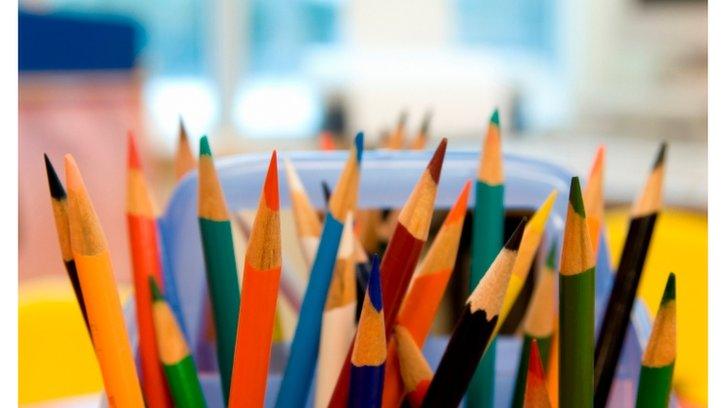
- Published12 December 2013
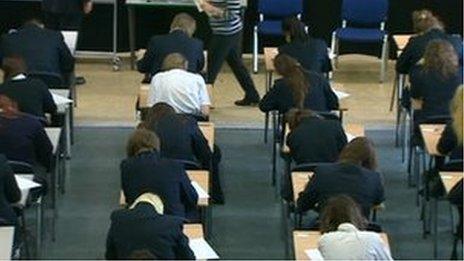
- Published11 December 2013
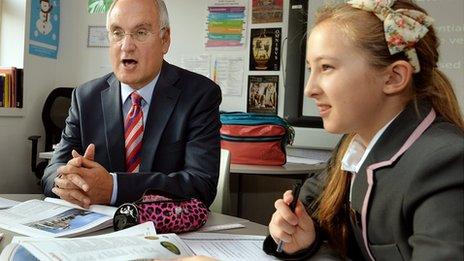
- Published20 September 2012
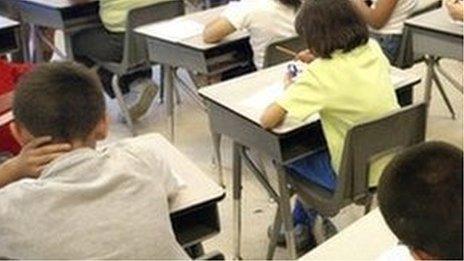
- Published19 September 2013
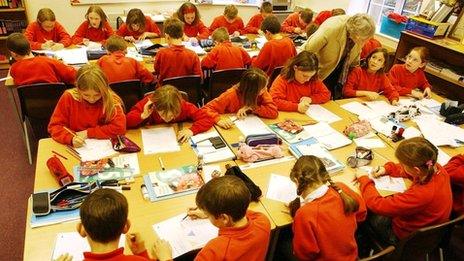
- Published17 July 2013

- Published31 October 2013
